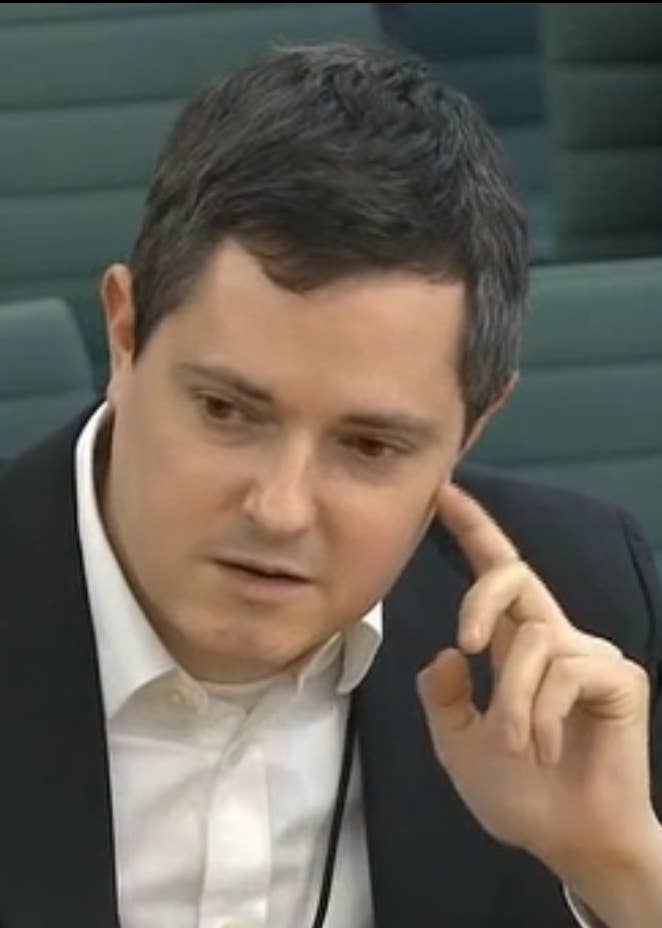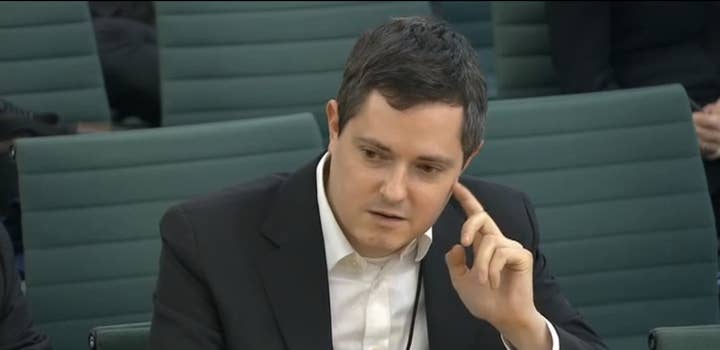Epic and EA execs squirm under scrutiny from British MPs
Testimonies arouse suspicion and dismay from members of immersive and addictive technology inquiry
Representatives from Epic Games were accused of evasive behaviour during a Commons inquiry into immersive and addictive technologies yesterday.
The comments came from Clive Efford MP after nearly two hours of grilling into player spending, playtime, age verification, and corporate responsibility.
Committee members were left perplexed and frustrated by the blinding denial or deft avoidance of executives and legal counsel from Epic Games and Electronic Arts.
Yesterday's hearing was the latest in an ongoing inquiry into immersive and addictive technologies by the Digital, Culture, Media, and Sport Committee.
It comes at a pivotal time for the games industry, which is under increased scrutiny amid the ongoing loot box debacle, and recent classification of Gaming Disorder by the World Health Organisation.
However, any hope that two of the industry's leading lights would do anything to assuage concerns were promptly dashed upon the rocks after testimonials left committee members reeling.

During one particularly fractious exchange, committee chair Damian Collins MP said: "If I was a parent who was concerned about my child's use of Fortnite, I think listening to your testimony would not give me any encouragement at all that this was an issue that you cared about."
His comments were echoed by Ian Lucas MP who took to Twitter after the hearing.
"Quite extraordinary session of @CommonsCMS with Epic and EA games companies who appear to think they have no obligation at all to those who are addicted to games," he said. "They do not appear even to have considered it."
Attending the hearing were Epic Games' director of marketing Matt Weissinger and general counsel Canon Pence, who were joined by Electronic Arts' UK country manager Shaun Campbell and vice president of legal and government affairs Kerry Hopkins.
Epic Games in particular attracted ire from MPs, driven by evasive or baffling answers that seemed to only raise further concerns.
At one point, Canon Pence claimed it was inaccurate to define Epic as a company which makes money from people playing its games, to which Collins responded: "You're not a charity."
Throughout the sessions, Epic and EA trotted out familiar old lines on everything from loot boxes, to age verification, and excessive playtime.
"We don't call them loot boxes... We call then 'surprise mechanics'," said EA's Kerry Hopkins, who said she had no ethical qualms with the publishers' implementation of loot boxes, and justified any problematic consequences as "bad guys find ways to do bad things."
"Listening to your testimony would not give me any encouragement at all that this was an issue that you cared about"
Damian Collins, committee chair
Meanwhile, Epic admitted to not verifying players' ages for Fortnite, placing responsibility solely on the platform holder.
Both companies had little to offer on questions around playtime, either claiming they did not track that data specifically, or providing strawman arguments around what constitutes "too much."
After several minutes of attempting to pin Epic's Matt Weissinger on the definition of a regular player, the committee was met with the response that it was "commercially sensitive" information.
"What I struggle with here, [Fortnite] is a game which makes money out of people playing it," replied Collins in dismay. "It's a hugely successful game played by millions of people around the world. And this sort of basic information -- we know from other game companies we've spoken to -- is something that would be gathered and analysed all of the time. So I don't believe you don't know this information.
"So for me, this arouses suspicion that this is not something we can discuss... this is basic information. We don't need to know your corporate secrets... but I'm sure you've got an idea what the answers to these questions are."
Considering the duty of care a developer might owe its players, especially in the wake of the WHO Gaming Disorder classification, Epic once again proved evasive and unwilling to accept any level of responsibility, with Pence saying he was "not in a position of knowledge" to speak about it, adding "we rely on our trade organisations to do that."
"But you shouldn't," responded Collins. "You should have responsibility for your own company and your own customers. That's not what the trade body is there for. They may lobby for you, but you're the one that has responsibility. These are your users and your company...
"You could disregard what WHO has said, and seems to be that's your position, but going back to what other members are asking about duty of care, would it not be responsible of a company to actually consider the guidance given by the WHO and therefore consider if they have a duty of care to their users, to consider whether some of those users may fall into this definition of being gaming disorder."
Since officially launching earlier this year, the inquiry has taken oral evidence from academics, influencers, and British game studios. Next week, representatives from King, UKIE, and TIGA will be giving evidence.
Following the latest session, committee member Jo Stevens MP also took to Twitter, commenting: "Really concerning evidence from @EpicGames to our @commonscms this afternoon. No age verification system. No automated system to identify potential grooming of children on the chat rooms. No acceptance of any responsibility to have safeguarding measures in place."

